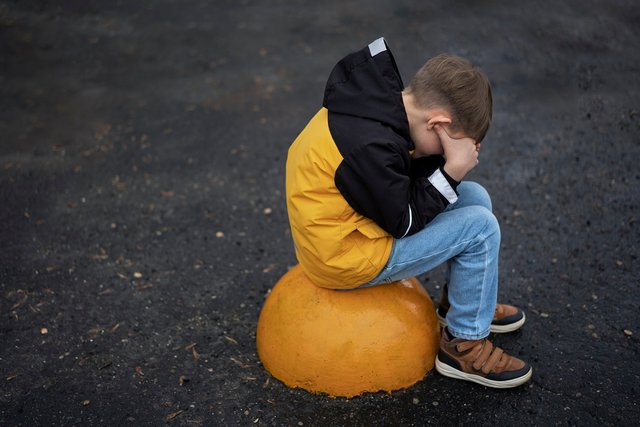How Childhood Trauma Shapes Your Adult Relationships

What Is Childhood Trauma?
Childhood trauma refers to any experience that causes significant emotional or physical harm during the formative years of life. This could include physical, emotional, or sexual abuse, neglect, loss of a parent, or experiencing severe illness. These early experiences shape how we view ourselves and the world.
Key Point: Childhood trauma isn’t just about physical harm—it can also affect emotional well-being and mental health.
How Trauma Affects Our Attachment Styles
One of the most significant ways childhood trauma impacts adult relationships is through attachment styles. Attachment theory suggests that the way we form emotional bonds in childhood influences how we behave in relationships as adults.
- Secure Attachment: Children who feel loved and supported tend to develop healthy, trusting relationships as adults.
- Insecure Attachment: Children who experience trauma may develop insecure attachment styles, which can lead to unhealthy patterns in relationships.
Key Point: The way we bond with caregivers as children influences how we bond with partners, friends, and even colleagues as adults.
Fear of Abandonment
For those who experienced neglect or emotional abandonment as children, a fear of being left alone or rejected can persist into adulthood. This fear often leads to anxious or clingy behaviors in relationships, where the individual may constantly seek reassurance or act overly dependent.
Key Point: Childhood experiences of neglect can cause an adult to be overly afraid of abandonment, even in healthy relationships.
Difficulty Trusting Others
Trauma, especially when it involves betrayal or abuse by a trusted adult, can make it hard to trust others. If someone grew up in an environment where they were hurt by people they loved, they may find it difficult to trust their partners or friends as adults, even if there’s no reason to doubt them.
Key Point: Trust issues can stem from early experiences of betrayal or broken promises in childhood.
Struggling with Intimacy
Some individuals who experienced trauma may struggle with emotional or physical intimacy. If love was associated with pain or betrayal in childhood, they may find it hard to be vulnerable with others. This can cause distance in adult relationships, preventing them from forming deeper connections.
Key Point: Trauma can make it difficult to experience intimacy, whether it’s emotional closeness or physical affection.
People-Pleasing and Avoidance
Those who experienced trauma might adopt coping strategies like people-pleasing or emotional avoidance. They might feel the need to keep others happy to avoid conflict or disappointment, or they might emotionally shut down to protect themselves from getting hurt.
- People-Pleasing: Constantly seeking approval from others to feel loved and accepted.
- Avoidance: Avoiding emotional connections or difficult conversations to protect oneself from vulnerability.
Key Point: People-pleasing and emotional avoidance are common defense mechanisms for those who have experienced trauma.
Repeating Unhealthy Patterns
A painful consequence of childhood trauma is that it can lead to repeating unhealthy relationship patterns in adulthood. Individuals who grew up in abusive or chaotic homes may unconsciously choose partners who are similar to their early caregivers, recreating the same cycle of dysfunction.
Key Point: Childhood trauma can influence our relationship choices, often leading us to repeat harmful patterns without realizing it.
Healing and Breaking the Cycle
While childhood trauma can deeply affect adult relationships, healing is possible. It’s important to acknowledge the past and work through the emotional wounds that have carried over into adulthood. Here are some ways to start healing:
Therapy and Counseling: Working with a therapist can help address deep-rooted trauma and provide tools to improve relationships.
Building Self-Awareness: Understanding how your childhood experiences shape your behavior in relationships can be the first step in breaking unhealthy patterns.
Building Healthy Boundaries: Setting boundaries is essential in any relationship, especially if you’ve experienced trauma. It helps protect your emotional well-being and fosters healthier connections.
Communication: Learning to communicate openly and honestly can help build trust and intimacy in relationships. Expressing your needs and emotions without fear of judgment is key to healing.
Key Point: Healing from childhood trauma involves self-awareness, seeking professional help, and actively working to break old patterns.
Conclusion: Moving Toward Healthier Relationships
Childhood trauma can deeply shape how we form and maintain relationships as adults. However, with awareness, therapy, and personal growth, it’s possible to heal and build healthier, more fulfilling connections. Understanding the impact of your past can help you break free from old patterns and create relationships that are based on trust, love, and respect.
Key Point: Recognizing the influence of childhood trauma is the first step in breaking free from its hold and creating healthier relationships.
Upvoted! Thank you for supporting witness @jswit.
There are a whole lot of us, we have fave lots of things when we are growing up that constantly now, it is becoming difficult for us to even adjust to it. We need to be careful of emotional trauma because it can make it mar oneself